Photo: John Esparza
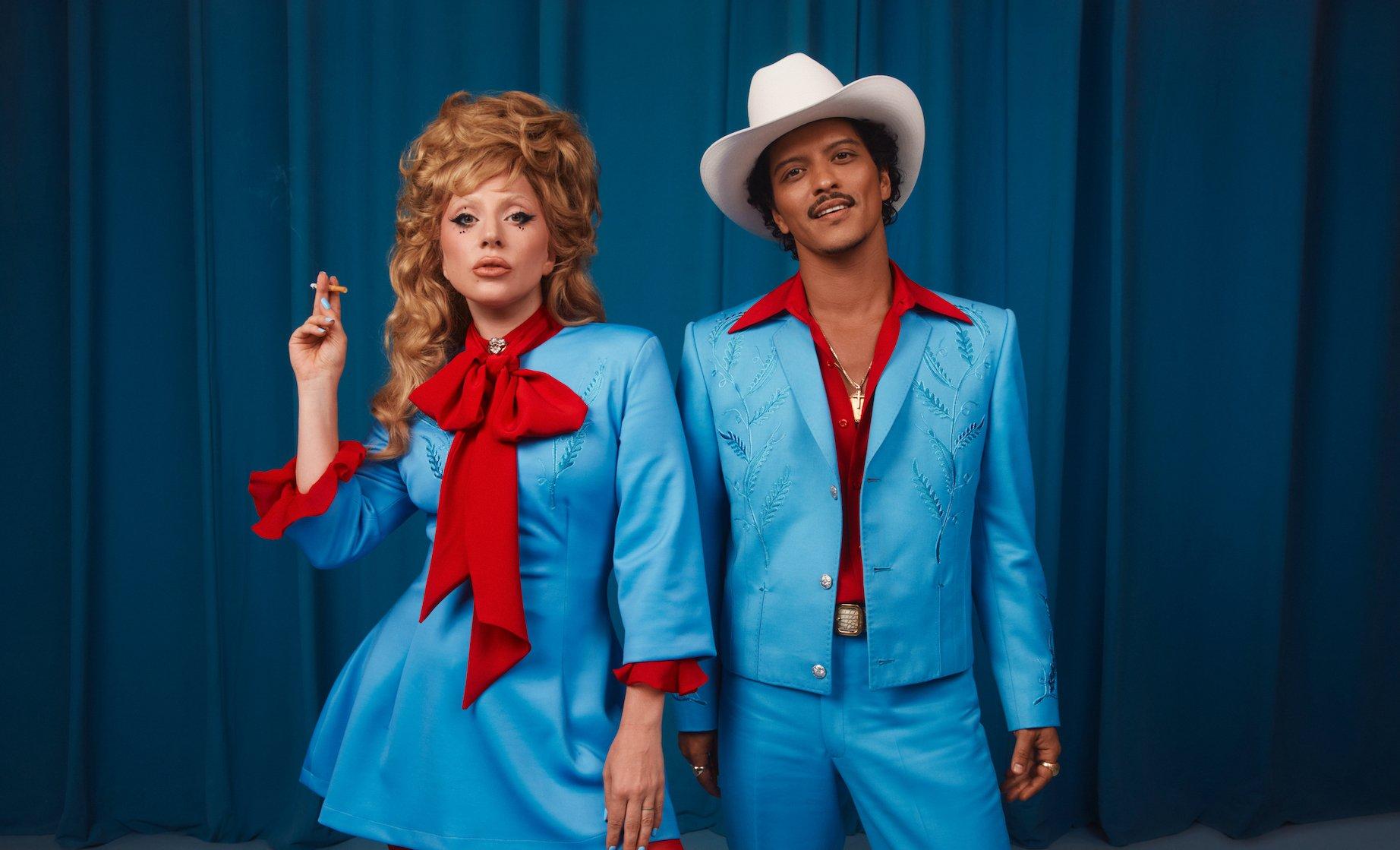
list
New Music Friday: Listen To Songs From Lady Gaga & Bruno Mars, LISA & Rosalía, Benson Boone & More
Between Post Malone's first country album and an unexpected collab from two of pop's biggest names, Aug. 16 is chock full of thrilling new music. Listen to new tracks from YG, Jean Dawson and Lil Yachty and more.
Summer may be slowly edging toward fall, but the red-hot streak of this summer's musical output shows no signs of slowing down.
This New Music Friday (Aug. 16), Post Malone goes country with his sixth studio album F-1 Trillion, Meghan Trainor adds four songs (and rearranges the track list) to the deluxe edition of her latest LP Timeless, and global girl group KATSEYE unveil their debut mini-album SIS (SOFT IS STRONG). Plus, Muscadine Bloodline share their fourth full-length The Coastal Plain and Nikka Costa drops Dirty Disco, her first album in eight years.
When it comes to singles, there's just as many new songs to explore — from superstar collabs like ROSALÍA and LISA's empowered "NEW WOMAN" to the latest releases from Hozier and Peggy Gou.
Below, dive into eight more new releases from pop and K-pop to rap, rock, country, dance, and more.
Lady Gaga & Bruno Mars — "Die With a Smile"
Lady Gaga and Bruno Mars gave the world just 12 hours notice that they were dropping "Die With a Smile" this week, sending Little Monsters and Hooligans alike into a tizzy as they braced themselves for the surprise duet.
Mars' sensual vocals lead off the moony, apocalyptic love song, which marks Mars' first release since his GRAMMY-winning work with Anderson .Paak as Silk Sonic. Strumming an electric guitar, the 15-time GRAMMY winner vows, "I, I just woke from a dream/ Where you and I had to say goodbye/ And I don't know what it all means/ But since I survived, I realized/ Wherever you go, that's where I'll follow."
As for Mother Monster's oeuvre, "Die With a Smile" lands somewhere between Joanne and "Shallow" as her fans wait impatiently for LG7. Not to be outdone, Gaga takes over on the second verse, supported by Mars' swooning harmonies as the duo crescendo the intensity of their devotion to meet the literal end of the world.
LISA & ROSALÍA — "NEW WOMAN"
On New Music Friday eve, BLACKPINK member LISA added to her blossoming collection of solo bangers with "NEW WOMAN," an empowering shapeshifter of a duet that sees her joining forces with ROSALÍA.
"Hit it when I serve/ B—, you better swerve/ Revving up my aura/ Focus on my mind/ Taking my time/ I'm a new woman, woman," the K-pop star proudly announces on the chorus of the song before Rosalía slams on the brakes to sing and rap her way through a sultry verse in her native Spanish that translates, in part, to "I was born pure, yes/ Not an era will be a flop in my future/ W—, I'm Rosalía, I only know how to serve."
The accompanying Dave Meyers-directed video is filled with high-fashion looks (thigh-high boots on fire, that massive, floor-sweeping pearl necklace…or is it made of ball bearings?), Y2K nostalgia (flip phones!) and a bevy of quirky, genuinely off-beat moments that will be sure to help drive the conversation as LISA continues to establish herself — and her nascent LLOUD partnership under RCA Records — as a global force in control of her musical destiny.
Benson Boone — "Pretty Slowly"
Fresh off "Death Wish Love" — his folksy contribution to the Twisters soundtrack — Benson Boone uses his newest single "Pretty Slowly" to celebrate his sudden rise as one of pop music's shiniest new stars.
The deceptively upbeat track's lyrics reflect on the dissolution of a relationship lost to all the recent, stratospheric changes in his life as he croons, "Oh, how come all the best things fall apart/ And it started pretty slowly/ When you asked about the old me/ Oh, is he gone? Oh, is he gone/ Oh, I don't know/ I think I left him somewhere I no longer go."
However, the song's accompanying music video acts as a both a victory lap in the wake of his debut album, Fireworks & Rollerblade, from earlier this summer and and energetic peek into the "Beautiful Things" breakout's high-octane live show — complete with thousands of ecstatic fans and his signature, onstage backflips.
YG — 'Just Re'd Up 3'
More than a decade after his 2013 mixtape Just Re'd Up 2, YG adds to the series with the long-awaited Just Re'd Up 3.
The Compton native has released six other albums and a litany of other mixtapes and collaborative projects in the interim, and his decade-plus in the spotlight allows him to recruit a wide array of contemporaries for the two-disc LP — from Saweetie ("SHE PRETTY") and Ty Dolla $ign ("IT'S GIVIN," "RESCUE ME") to Tee Grizzley and G Herbo ("MALIBU") and Lil Yachty and Babyface Ray ("STUPID").
Jean Dawson & Lil Yachty — "Die For Me"
"Die For Me," Jean Dawson's new collaboration with Lil Yachty, blends the experimental leanings of the L.A.-based polymath (and musical arranger on Beyoncé's COWBOY CARTER) with the bubblegum trap rapper's one-of-a-kind flow — and the result is magnetic.
Sonically, the swirling track feels like a logical follow-up to Bad Cameo, the "Poland" rapper's recent collaborative album with James Blake. After Dawson warbles the hook ("Don't show up at my funeral/ If you won't die for me"), Lil Yachty grabs the mic for a blunt-force eulogy that demands repeated listening.
Morgan Wade — 'Obsessed'
Morgan Wade preceded her fourth album, Obsessed, with delicate, heart-on-her-sleeve singles like "2AM in London" and "Time to Love, Time to Kill." Arriving almost a year to the day since her previous full-length Psychopath, the country upstart — and occasional Real Housewives of Beverly Hills guest star — is just as vulnerable on the rest of the album.
Showing off her aptitude for laying bare emotional storytelling and heart-crushing nostalgia, Wade cleverly exposes her fragilities and regrets across the album's 14 tracks — whether she's gender-flipping Shakespeare and competing with Romeo on the forbidden "Juliet," finding somber inspiration in fairy tales on the wistful "Hansel and Gretel," or duetting with Kesha on the repentant "Walked on Water."
Falling In Reverse — 'Popular Monster'
Seven years since 2017's Coming Home, Falling In Reverse are back with their fifth studio album, Popular Monster. The LP's rollout has been spread across nearly half a decade, with the title track being released as the lead single way back in November 2019. Six additional singles have followed in the lead-up to the long-awaited project, including collaborations with Tech N9ne and Slaughter to Prevail vocalist Alex Terrible ("Ronald") and Jelly Roll ("All My Life"), as well as a reimagined cover of Papa Roach's "Last Resort."
And while Popular Monster's cover art is plastered with frontman Ronnie Radke's 2012 mugshot for alleged domestic assault, the release is hardly a solo project. In fact, it's the first Falling in Reverse album to feature Max Georgiev on guitar, Tyler Burgess on bass and Luke Holland on drums. (Derek Jones, the band's late rhythm guitarist, also contributed to the title track before his untimely death in 2020 from a subdural hematoma.)
DJ Snake & Fridayy — "Complicated"
Fridayy is practically begging to keep things simple on "Complicated," his yearning, pulsating new collaboration with DJ Snake. "Tell me what you want/ Girl, I want to know/ Please don't make it complicated/ We ain't gotta complicate it," he repeats over the DJ's hypnotic rhythms filled with Spanish guitar and distant jungle sounds.
Eventually, the three-time GRAMMY nominee's desperate pleas morph into an atmospheric echo as DJ Snake's handiwork takes center stage, plunging the track into a spellbinding synth breakdown that dances all the way to the finish.
The Latest Pop Music News & Releases
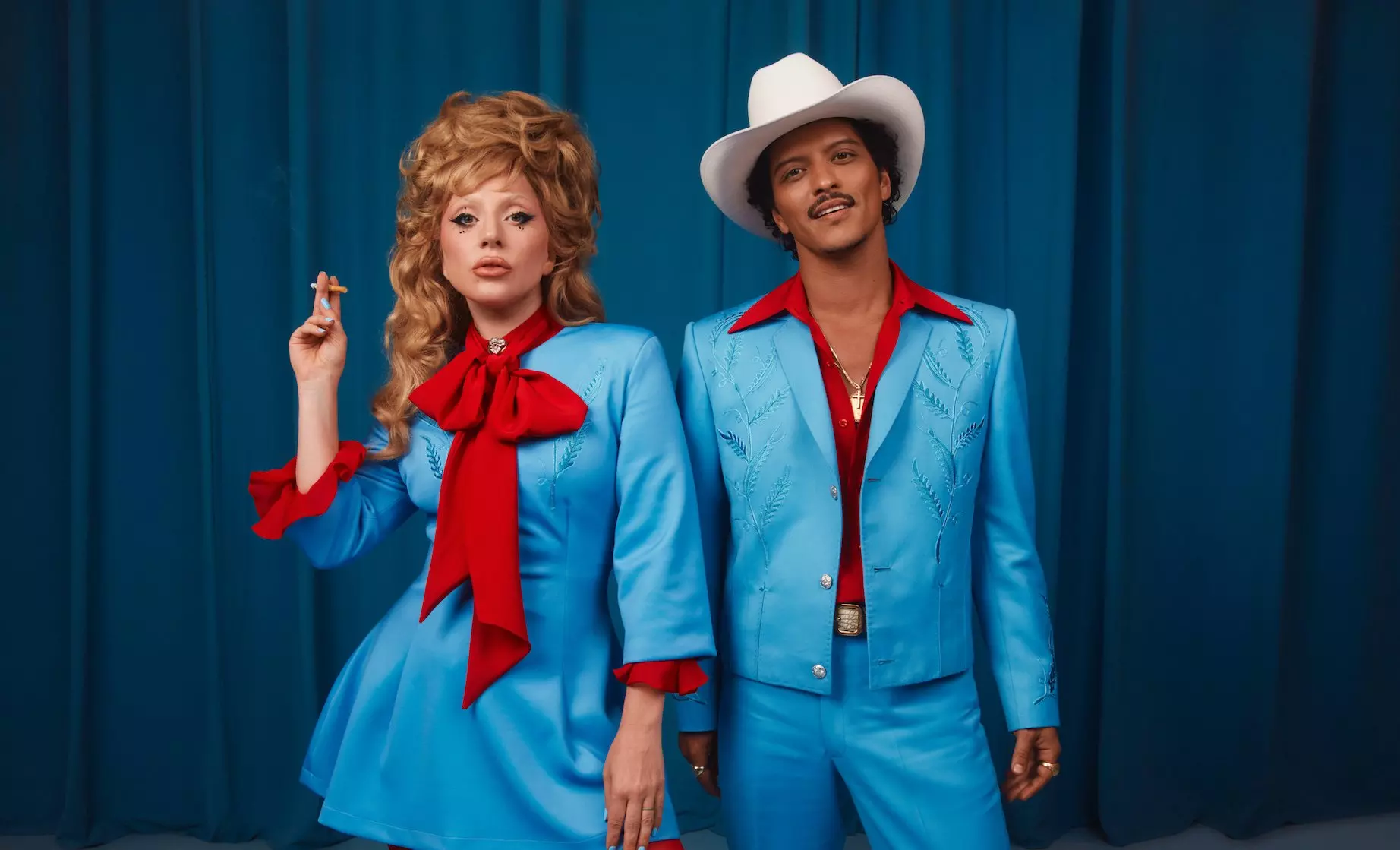
New Music Friday: Listen To Songs From Lady Gaga & Bruno Mars, LISA & Rosalía, Benson Boone & More
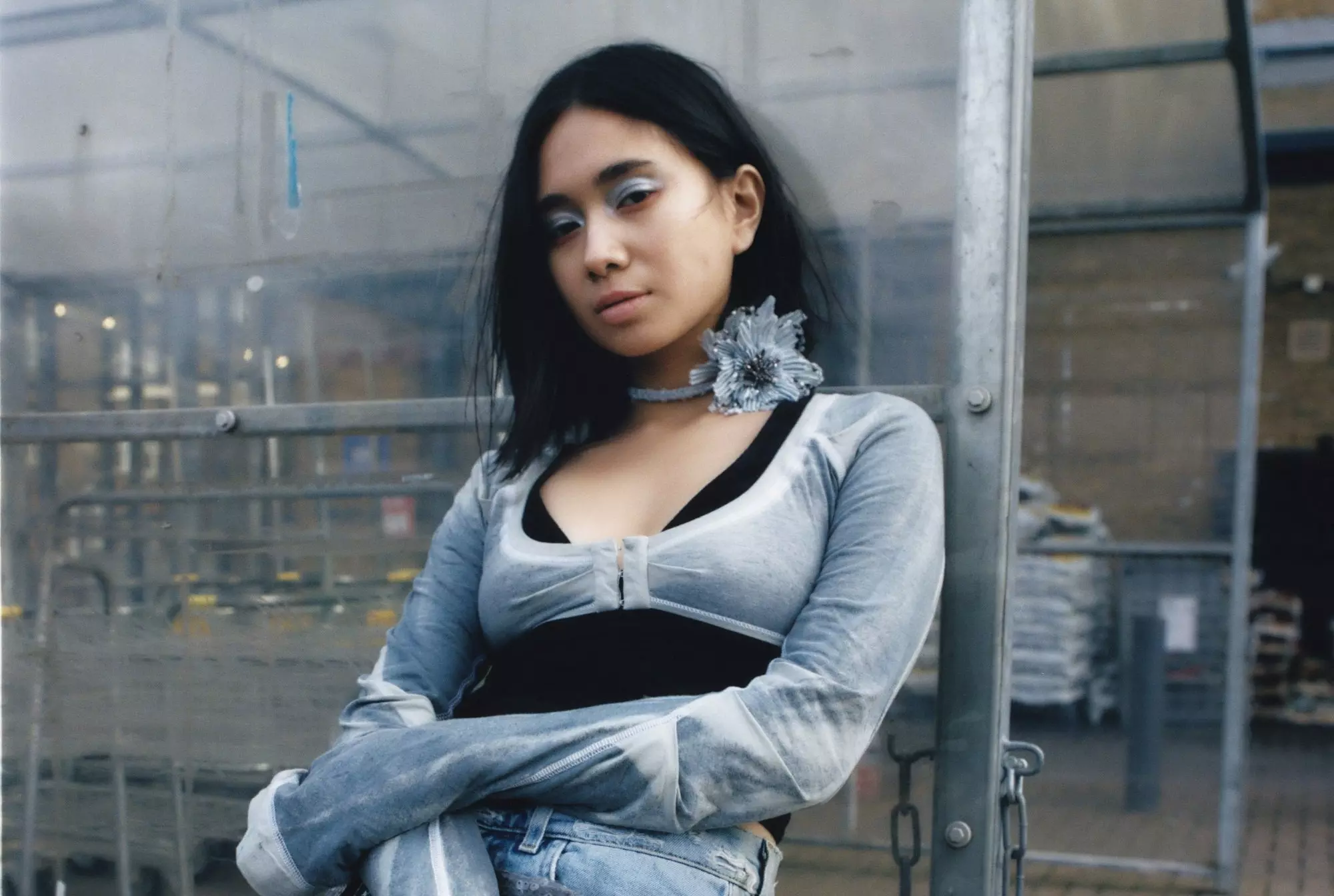
On Her New Album 'Buzz,' NIKI Embraces Radical Acceptance & The Art Of Letting Go
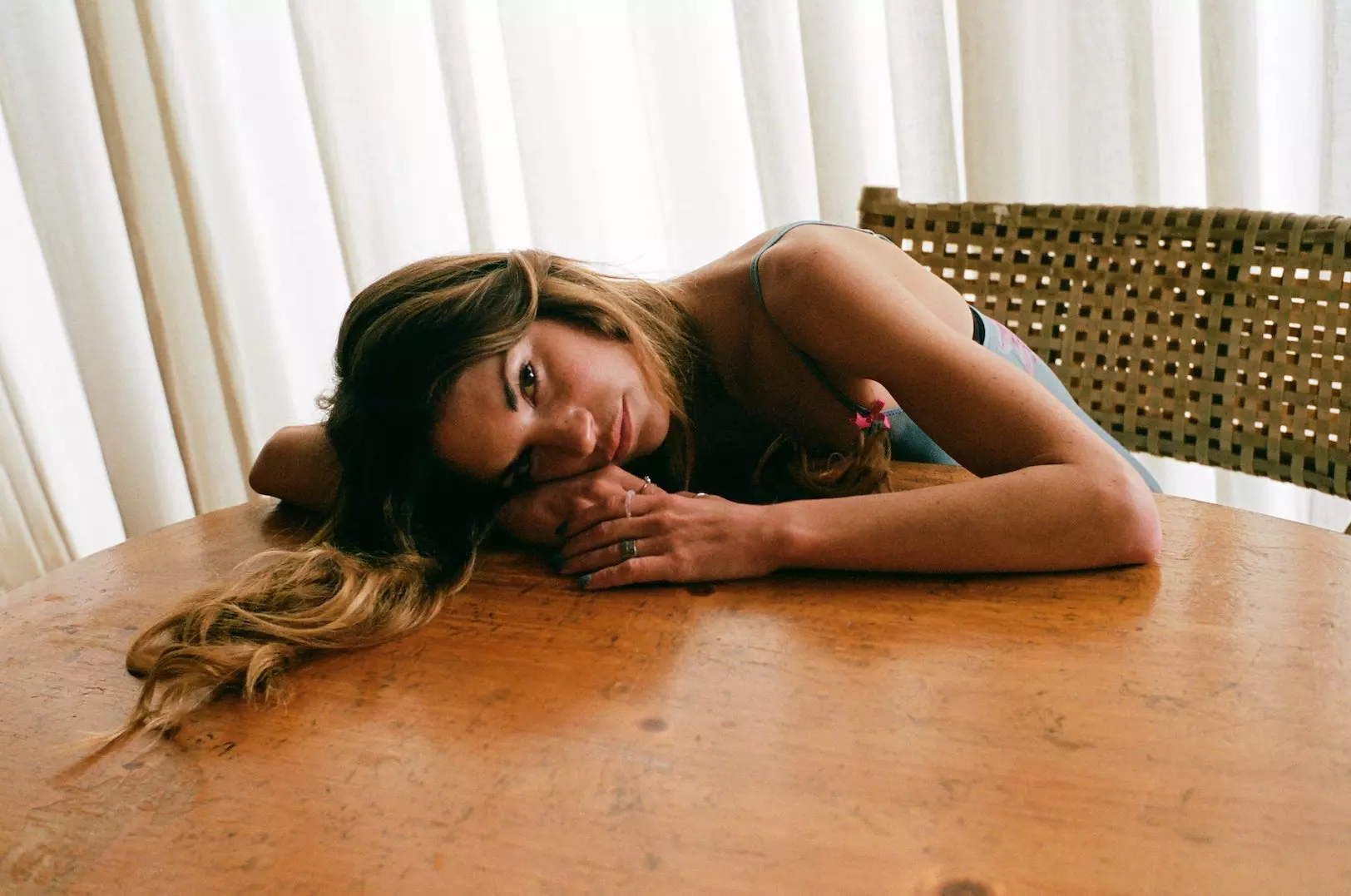
Meet Amy Allen, The Hitmaking Singer/Songwriter Behind Sabrina Carpenter's "Please Please Please" & More Pop Gems
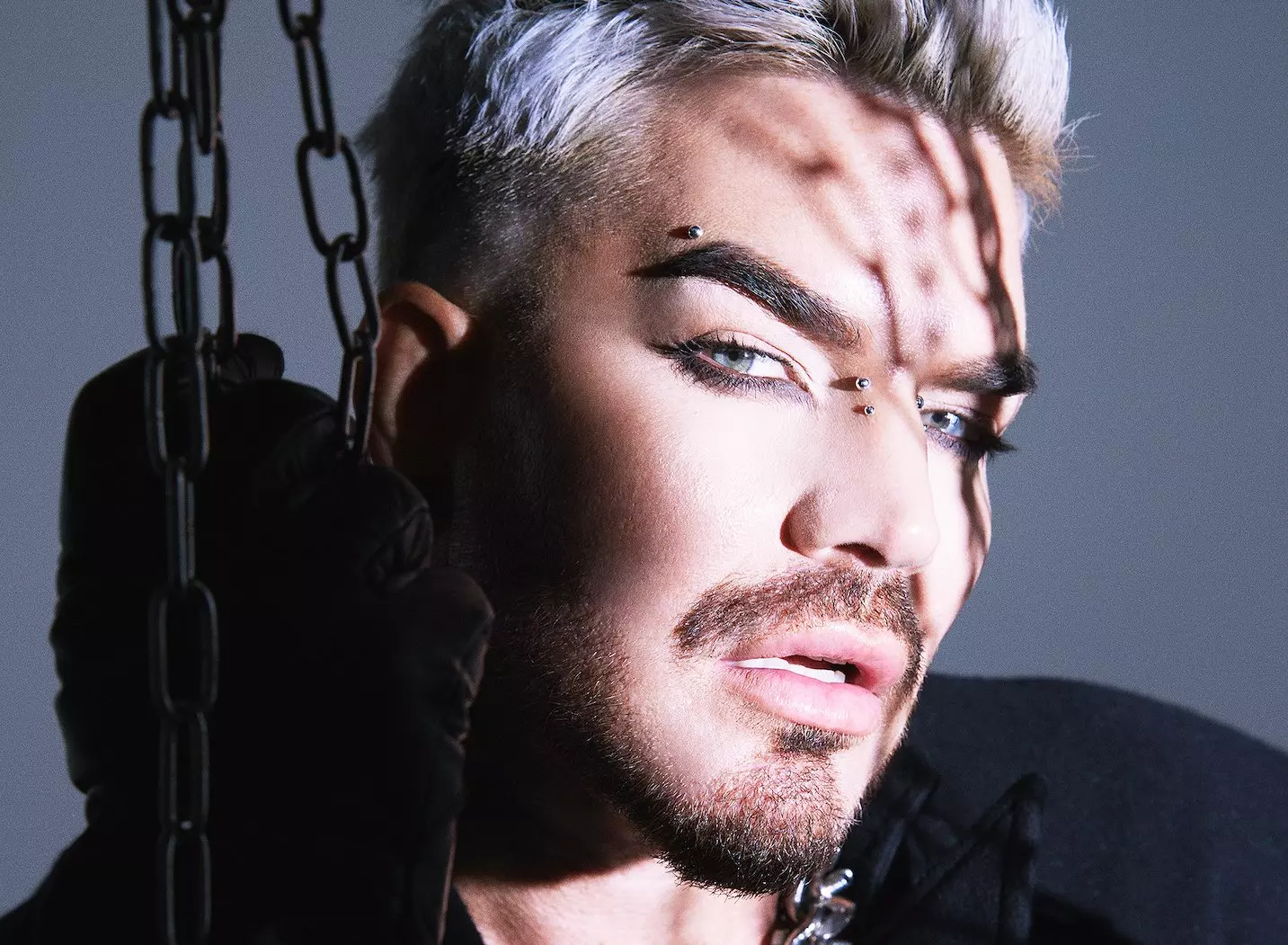
Inside Adam Lambert's 'Afters': How '90s House, Clubbing & Lots Of Sex Inspired His Most "Liberated" Music Yet
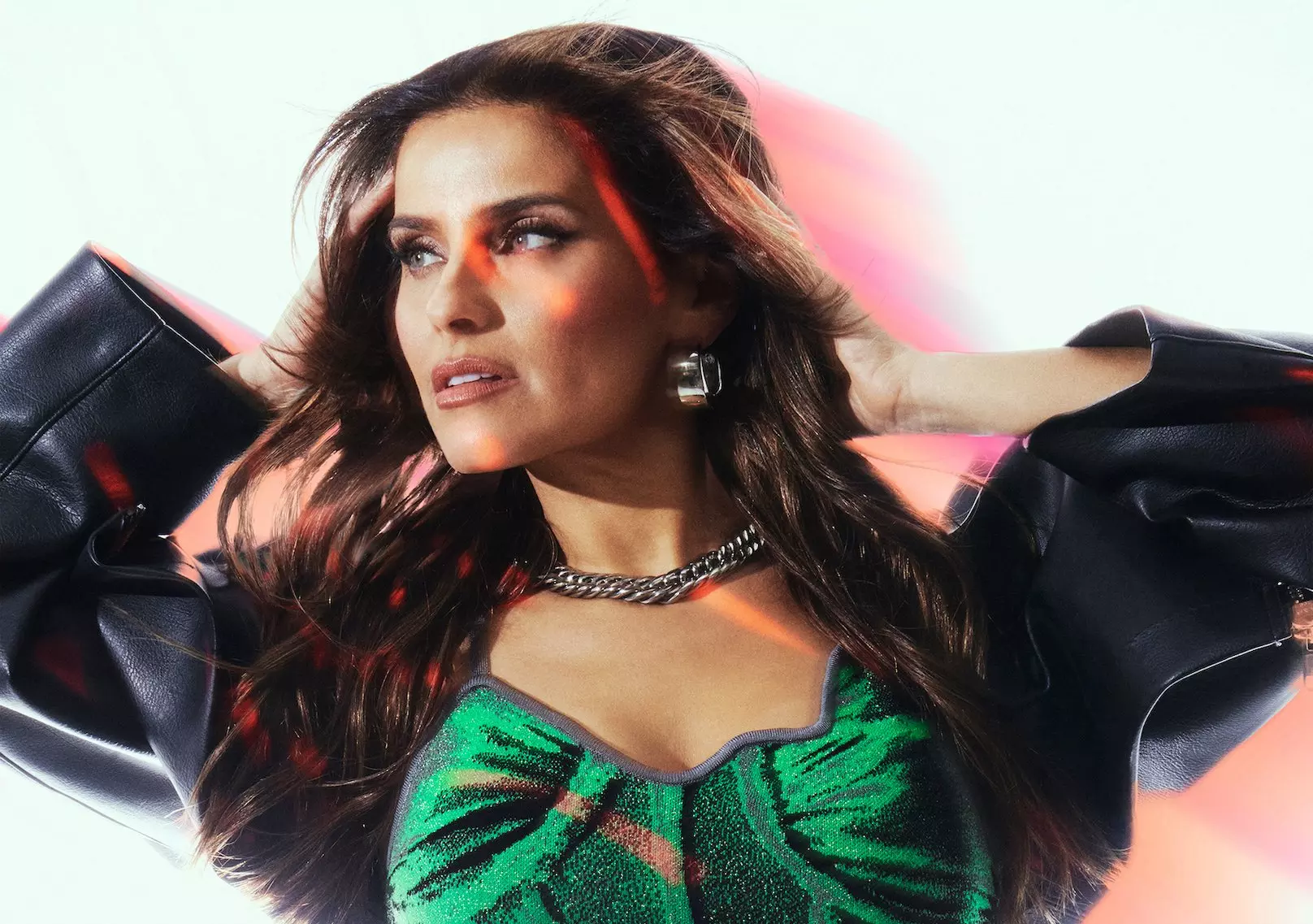
Nelly Furtado On How Remix Culture, ADHD & Gen Z Inspired Her New Album '7'
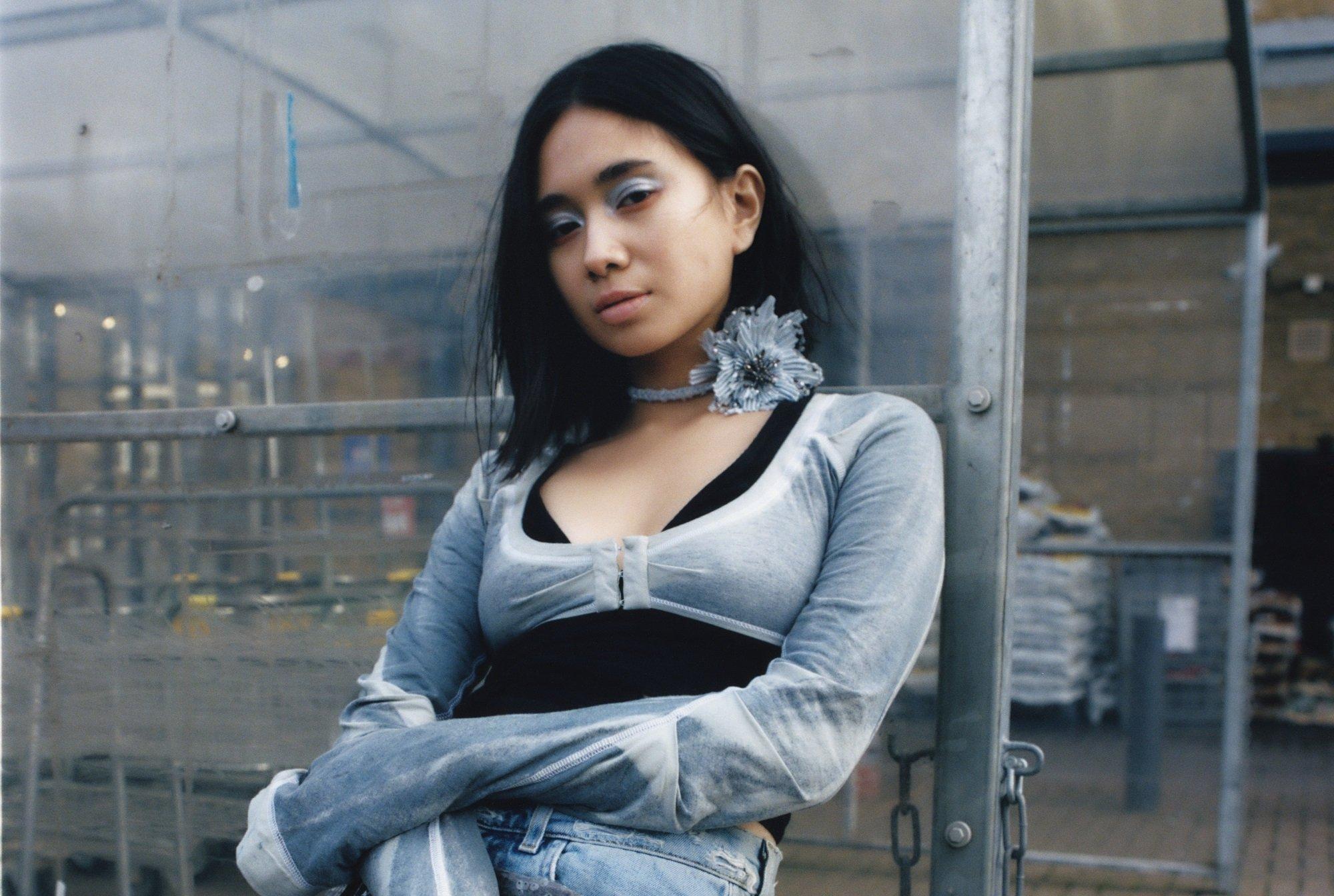
Photo: Annie Lai
interview
On Her New Album 'Buzz,' NIKI Embraces Radical Acceptance & The Art Of Letting Go
While processing a whirlwind of releases and tours, NIKI dug deep to create the empowered, thoughtful 'Buzz.' The singer/songwriter details the creative process behind her latest LP, and how she arrived in her "no clowns era."
At multiple points during our conversation discussing her latest album Buzz, NIKI falls back on one phrase. "I should speak for myself." While she cuts herself off often, physically but gently coaxing herself back on track, NIKI's latest release is defiantly personal.
"I think it's going to mark a new era for me musically. Personally, it is my favorite thing I've ever done." she says of the album.
The past few years of NIKI's life have been spent in constant flux. The artist started her career as a performing artist on YouTube, did a headlining tour in support of her second album Nicole, and eventually became the first Indonesian artist to perform at Coachella (alongside fellow 88Rising labelmate Rich Brian). For the former self-proclaimed perfectionist, the exhaustion and rudderlessness of touring threw open the doors to some much needed introspection. When NIKI found herself alone, she realized had no idea who she was or what she was doing. So, she did the only thing she could do: write songs.
"I write songs as a way to process my life as it's happening. Everyone has different ways of coping, and that just happens to be mine," the 25-year-old singer confesses. Buzz was written between tour dates, with no "concrete vision" in mind; in fact, it was probably the first time that NIKI had truly processed everything that had happened in her career. "Writing 'Buzz' was a very reflection-oriented time. I was making sense of my present and how my past has sort laid down the stepping stones, and everything in between."
Confronted with a constant feeling of being uprooted and the vast unknown, NIKI realized that keeping a tight grip on how she approached, understood, and perceived her emotions was counterproductive. "Writing 'Buzz' was my way to deal with a lot of this existentialism that I was coming into for the first time in my early 20s," she continues. "I feel like everyone is starting to ask the big, deep, difficult questions when they start to live on their own and have to trudge through life as their own person."
With an intimate, oft-minimalistic sound and almost stream of consciousness lyrics Buzz is an album for letting go of control and the learned behaviors of perfectionism in the favor of self-awareness, where NIKI processes "a spectrum of world weariness, of excitement, of joy and pain and all the moments in between."
"Buzz" is where she finds herself anew. She takes her time mulling over the hard questions on "Nothing Can", allows herself to grieve the loss of a great love on "Paths", breaks the cycle of generational trauma on "Strong Girl" and "Heirloom Pain", and learns that there is "freedom in accepting that everything is just incomplete and messy all the time."
This interview has been edited and condensed.
When I was reading about the album, it appeared that you faced an identity crisis while making it. Do you feel satisfied with it or are you anxious about how people will receive it?
I think it's both. Anytime I'm on the cusp of releasing something, I'm always a little bit nervous as to how people are going to receive it. At the same time, I feel like I made this record with full conviction in myself and in my artistry.
I think this is really the first time that I'm able to say that. I steered the making of this record myself.
A lot of the songs on 'Buzz' felt like waves, with a very natural flow and progression to the songs on the album. It felt like you were giving into a feeling or embracing something. Did you allow yourself to feel [this flow] or did you have a concrete vision?
Buzz was the first album that I made that I didn't actually have a concrete vision in mind. It was just an organic synthesis of what's been happening over the past two years.
Two years ago I started headline touring, and that inspired a lot of the album. Just this feeling of constantly being on the go, being uprooted time and time again, so the theme of acceptance is a huge one on this album. The acceptance of life being a constant state of uncertainty. We, as people, are constantly developing and irresolute. So this album was kind of made to process those feelings.
It’s an album of nuance, of nestling into this area of gray that we so often wrestle with in life. I definitely tend to see things as black and white. I was raised to think that way, with my Indonesian upbringing. My mom was very religious, so I think this album is about unlearning a lot of that stuff, taking what serves you from childhood and letting go of what doesn't, and embracing that things will feel messy very often.
Yet you ended the album itself on a very hopeful note. Was that intentional?
Absolutely. Sometimes I joke that the universe has its foot on my neck right now. But I think, in general, I'm quite an optimistic person, or at least I try to be. I gravitate towards art or music that tends to skew that way, because I think we all need a little bit of hope in this very difficult, scary world.
The record ends with "Nothing Can." I love that song, because it's a blend of optimism, but also it's just telling it as it is. Like, nothing and no one will be able to save you and I think that was an important thing that I had to teach myself.
Growing up, you watch a lot of movies and so much of media is like, somebody's going to come swooping in knight in shining armor-style and maybe rescue you. Or a job will save you from your pain or the perfect fill-in-the-blank is gonna be the answer. That's impossible. You are responsible for your own happiness. What "Nothing Can" is about is that despite the mess and the suffering and the pain there are still moments in between that make everything worthwhile.
Did you go through a similar process of realization when it comes to making music? A moment where you thought, 'Maybe I'm expecting my career to make me happy but it should be the other way around?'
How do I eloquently say this? It's like... before Buzz, and even before Nicole, the way I perceived making music was like aceing assignments. I think I had always been a little bit of an overachiever. Buzz was my first real, true exercise in just writing and making art just to make art for myself versus to fulfill expectations. I found a lot of artistic healing through making this album because it was the first time I really kind of put my head down and was like: I'm going to make an album for myself in a way that I want and that feels authentic.
I realized quickly that every time I hit a milestone, I would aspire for the next milestone. And then there's always sky above sky — that is what my mom always told me. There is always something more to aspire to. So you really have to find peace and joy within yourself in order to show up the way you want to in your life. I wrote Buzz, just to help myself let go of the perfectionist streak.
So, if you were to describe the relationship between 'Nicole' and 'Buzz' knowing what you do now, what would you call it?
I have fondly nicknamed Buzz Nicole's older, wiser sister. Nicole walked so that Buzz could run. Nicole was a very diaristic window into my past and Buzz is very much rooted in my present. Nicole is about the subject matter that's important to you when you're 17, like your first ever breakup with your first love that feels so cataclysmic and earth-shattering. That's no longer relevant to me the same way that things are happening in my 20s now.
Nicole was also sonically a lot more pop. On Buzz, I was inspired by a lot of artists. Obviously Joni Mitchell, and a current artist that I really love that I feel like echoes Joni Mitchell is Madison Cunningham. I am so inspired by her musicianship and guitar playing specifically. It made me think: I would want to have an album that I'd be so stoked to play every single night for however long on tour and I never get sick of these songs. Buzz is more musical, and there is a looseness to it that I feel Nicole lacked.
I also remember you saying in an interview that back when you wrote 'Nicole,' you went very heavy on imagery and metaphors. In contrast, 'Buzz' is still poetic, but very rooted in practicality. Do you think that's a natural consequence of growing up, and dealing with the realization that once life has hit us in the face, we don't prefer not to look at things with rosy lenses?
[Laughs.] I think it is a natural consequence of growing up. I think Nicole was so unapologetically schmaltzy. The way I wrote, I definitely cringe now because, you know, it's that 17-year-old drama. Everything feels so blown up out of proportion when you're 17, right? It was so emotional. The way I write [now] is totally different because there's a big dose of practicality and pragmatism in the way I perceive things. I think it's a lot more emotionally healthier to balance emotion and reason, than having emotions just completely drown reason.
Buzz, specifically, is very much a reflection of the kind of writing that I gravitate to now, which is a lot less like "My world is going to end because you're leaving." Because you know when you're 25, you don't really necessarily feel that anymore. I feel that's really obvious in songs like "Take Care" and "Paths" where it is an older kind of love. A significant relationship of mine ended, and I still very much have only respect and love for this person and also wanting the best for them. I feel like, on Nicole, it was all so punitive. It was like, "You must be punished for how you hurt me!"
Was there anything that helped you learn to deal with things in this way? I did read that the album also contains some lessons that you learned in therapy.
Therapy has had a direct link to this record. Therapy has been transformative in the way I think and therefore the way I think shapes the way I write, and the way I write shapes the album that I make.
For example, I call "Heirloom Pain" and "Nothing Can" my "radical acceptance" songs. That was a term that I learnt through therapy. Radical acceptance does not mean demeaning your grief or repressing your pain. Radical acceptance is saying, This really sucks, but I'm going to respond to this in a different way. Without therapy, I probably would still be writing very punitive schmaltzy Nicole songs.
I think everything can be processed, though! I feel like Buzz has a balance. I feel like I'm still pretty petty on "Colossal Loss" and "Focus" is just shade central.
"Focus" really made me think you must be in your 'I'm not your therapist" era.
Exactly, I'm in my "no clowns" era. [Laughs.]
Radical acceptance makes a lot of sense. "Heirloom Pain" has this keen realization that our parents did their best, and they're only human, so you can't really blame them.
I think it humanizes everybody in [your family tree] that came before you, and at the very end, I flip it around onto [the listener] and [the song says] "You're gonna fall in love and f— up too."
We are born and everyone does the same thing over and over. We never learn! But at the same time, it doesn't shy away from the genuine pain and trauma. I literally called out my dad's temper and my mom's mistakes. Sometimes I'm like, 'Why did you guys not think about this before you had kids?' [Laughs.]
As you grow up…your parents kind of fall off the pedestal, you start to get on their level. You see them as humans.
This is such a primitive album for you in some ways. What was the recording process for this like?
When I am in work mode, I don't always feel it. If I'm singing a painful song, usually that hits me a little bit later. When I recorded "Paths," that was basically a one-take thing that I did in my own studio at home. I remember just singing through the whole song for the first time, and at one point in the middle, I choked. I started to tear up because I felt so emotionally moved.
With this album specifically, I've learned my methods. I never do more than three takes, especially for vocals. If I do more than three takes, it starts to... you know the feeling of when you look at a word too long and the word doesn't look like a word anymore? When I sing the same thing too many times, I start to not feel it anymore. ["Paths"] felt like exposure therapy. I wrote the thing that I was really scared to write and then I was singing it.
It's interesting you say that you don't like singing your songs on repeat. What is your relationship with touring like then? Does it get exhausting performing the same song or set over and over?
Touring is definitely a different beast. I feel like it's more important to get the right take when you're recording an album, because an album is forever. A show is different every single night. To be completely honest, sometimes as a performer, if you do it so many times like it's muscle memory. You can slip into autopilot over time. The constantly changing variable on tour is the crowd. So whatever is happening in the crowd is usually enough to inject a newness to the show.
I also wrote Buzz for this reason. I wanted an album that felt looser and felt more relaxed even in its DNA so that when I go on tour, I can play it as loosely as possible to create space for variety.
It also feels like you've learned to be more accepting. Your recordings used to be a fairly solitary affair but now you've actively started involving more people in it.
I definitely ventured out into involving more collaborators and it's not just me and my laptop and headphones anymore, but I definitely still am very selective with who I let into my musical universe, because I have a specific vision of how I want things to sound, and what kind of environments I work best in.
The way I like to work is that I start a skeletal framework for [a song], I produce it a little bit, record some parts. Then I call a producer that I respect, who I've seen work on my other favorite artists and then I give them that framework and then we finish it together. I worked with Ethan Gruska, who worked with Phoebe Bridgers, and Tyler Chester – who helped me produce "Strong Girl" – worked on all of Madison Cunningham's stuff. It's really fun to keep the circle small.
A lot of songs on 'Buzz', like "Blue Moon," "Paths" and "Magnets" talk about putting faith in a higher power.
I grew up very religious. My mom was a singer at church, so God was always an integral concept growing up. I wouldn't call myself a Christian now, but I definitely still believe in something greater than all of us. Julia Cameron, who wrote The Artist's Way, said: "God can be God to you, or it can stand for Good Orderly Direction." I think it is a beautiful way of thinking about it.
I definitely am also an astrology girlie. I do believe that we were all made with intention. I do think there's a great creator out there and I believe that there is something out there — the universe, God, whatever you want to call it — that's guiding us or has our best interest.
Do you like revisiting your past stuff? I ask this because it feels like with every new album, you have proverbially wiped the slate clean.
I will literally listen to my work or my music a million times before it's out. And then once it's out, I rarely ever revisit it.I almost see it as yours; it's the world’s now. It's ours. It's not something that I have been intentional about. Even when I had a YouTube channel when I was 15, I did this. I would watch my video and edit it five million times. And then as soon as I uploaded it, I never watched it again.
I guess I do this to process my life as it's happening. Once it's shared, it's difficult for me to view it as just my own anymore. That's why every time I move on to a new project it feels like a completely different thing, because I never look at my past work. I never draw from that as an inspiration. I look forward instead.
The Latest Pop Music News & Releases

New Music Friday: Listen To Songs From Lady Gaga & Bruno Mars, LISA & Rosalía, Benson Boone & More

On Her New Album 'Buzz,' NIKI Embraces Radical Acceptance & The Art Of Letting Go

Meet Amy Allen, The Hitmaking Singer/Songwriter Behind Sabrina Carpenter's "Please Please Please" & More Pop Gems

Inside Adam Lambert's 'Afters': How '90s House, Clubbing & Lots Of Sex Inspired His Most "Liberated" Music Yet

Nelly Furtado On How Remix Culture, ADHD & Gen Z Inspired Her New Album '7'

Photo: Kevin C. Cox/Getty Images
news
2024 Paris Olympics Opening Ceremony: Watch Celine Dion, Lady Gaga, Gojira & More Perform
The Olympic Games have long featured iconic musical performances – and this year is no different. Check out the performers who took the stage in the City of Light during the 2024 Olympics Opening Ceremony in Paris.
The 2024 Paris Olympics came to life today as the Parade of Nations glided along the Seine River for the opening ceremony. The opening spectacular featured musical performances from Lady Gaga, Celine Dion, and more. Earlier in the week, some of music’s biggest names were also spotted in the city for the Olympics, including Olympics special correspondent Snoop Dogg, BTS' Jin, Pharrell Williams, Tyla, Rosalía, and Ariana Grande.
Read More: When The GRAMMYs & Olympics Align: 7 Times Music's Biggest Night Met Global Sports Glory
Below, see a full breakdown of some of the special musical moments from the 2024 Paris Olympics opening ceremony.
Lady Gaga
In a grand entrance, Lady Gaga emerged behind a heart-shaped plume of feathers on the golden steps of Square Barye, captivating the audience with her cover of the French classic "Mon truc en plumes." Accompanied by cabaret-style background dancers, she flawlessly belted out the song, executed impressive choreography, and even played the piano.
Lady Gaga’s connection to the song is notable, as Zizi Jeanmarie, the original artist, starred in Cole Porter’s musical "Anything Goes," which was Lady Gaga’s debut jazz release.
"Although I am not a French artist, I have always felt a very special connection with French people and singing French music — I wanted nothing more than to create a performance that would warm the heart of France, celebrate French art and music, and on such a momentous occasion remind everyone of one of the most magical cities on earth — Paris," Lady Gaga shared on Instagram.
Celine Dion
Closing out the ceremony with her first performance in four years since being diagnosed with stiff-person syndrome, Celine Dion delivered a stunning rendition of Edith Piaf’s everlasting classic, "L’Hymne à l’amour" from the Eiffel Tower. Her impressive vocals made it seem as though she had never left.
This performance marked Dion’s return to the Olympic stage; she previously performed "The Power of the Dream" with the Atlanta Symphony Orchestra and composer David Foster for the 1996 Olympics.
Axelle Saint-Cirel
Performing the National Anthem is no small feat, yet French mezzo-soprano Axelle Saint-Cirel knocked it out of the park.
Dressed in a French-flag-inspired Dior gown, she delivered a stunning rendition of "La Marseillaise" from the roof of the Grand Palais, infusing the patriotic anthem with her own contemporary twist.
With the stirring lyrics, "To arms, citizens! Form your battalions. Let’s march, let’s march," Saint-Cirel brought the spirit of patriotism resonated powerfully throughout the city.
Gojira
Making history as the first metal band to perform at the Olympics Opening Ceremony is just one way Gojira made their mark at the event.
The French band took the stage at the Conciergerie, a historic site that once housed French kings during medieval times and later became a prison during the French Revolution, famously detaining Marie Antoinette – Creating a monumental moment as the first metal band to perform at the ceremony, but also stirring the pot as they used the chance to nod toward politics.
Performing a revamped version of "Ah! Ça Ira," an anthem that grew popular during the French Revolution, the artists aren’t new to using their songs as a vehicle for political messages. The GRAMMY-nominated group are outspoken about issues concerning the environment, particularly with their song, "Amazonia," which called out the climate crisis in the Amazon Rainforest. Using music to spread awareness about political issues is about as metal as it gets.
Aya Nakamura
Currently France’s most-streamed musician, Aya Nakamura went for gold in a striking metallic outfit as she took the stage alongside members of the French Republican Guard. As there were showstopping, blazing fireworks going off behind her, she performed two of her own hit songs, "Pookie" and "Djadja," then followed with renditions of Charles Aznavour’s "For Me Formidable" and "La Bohème."
Although there was backlash regarding Nakamura’s suitability for performing at the ceremony, French President Emmanuel Macron dismissed the criticism. "She speaks to a good number of our fellow citizens and I think she is absolutely in her rightful place in an opening or closing ceremony," Macron told the Guardian.
Latest News & Exclusive Videos

Watch Loretta Lynn Win Best Country Album In 2005

New Music Friday: Listen To Songs From Lady Gaga & Bruno Mars, LISA & Rosalía, Benson Boone & More
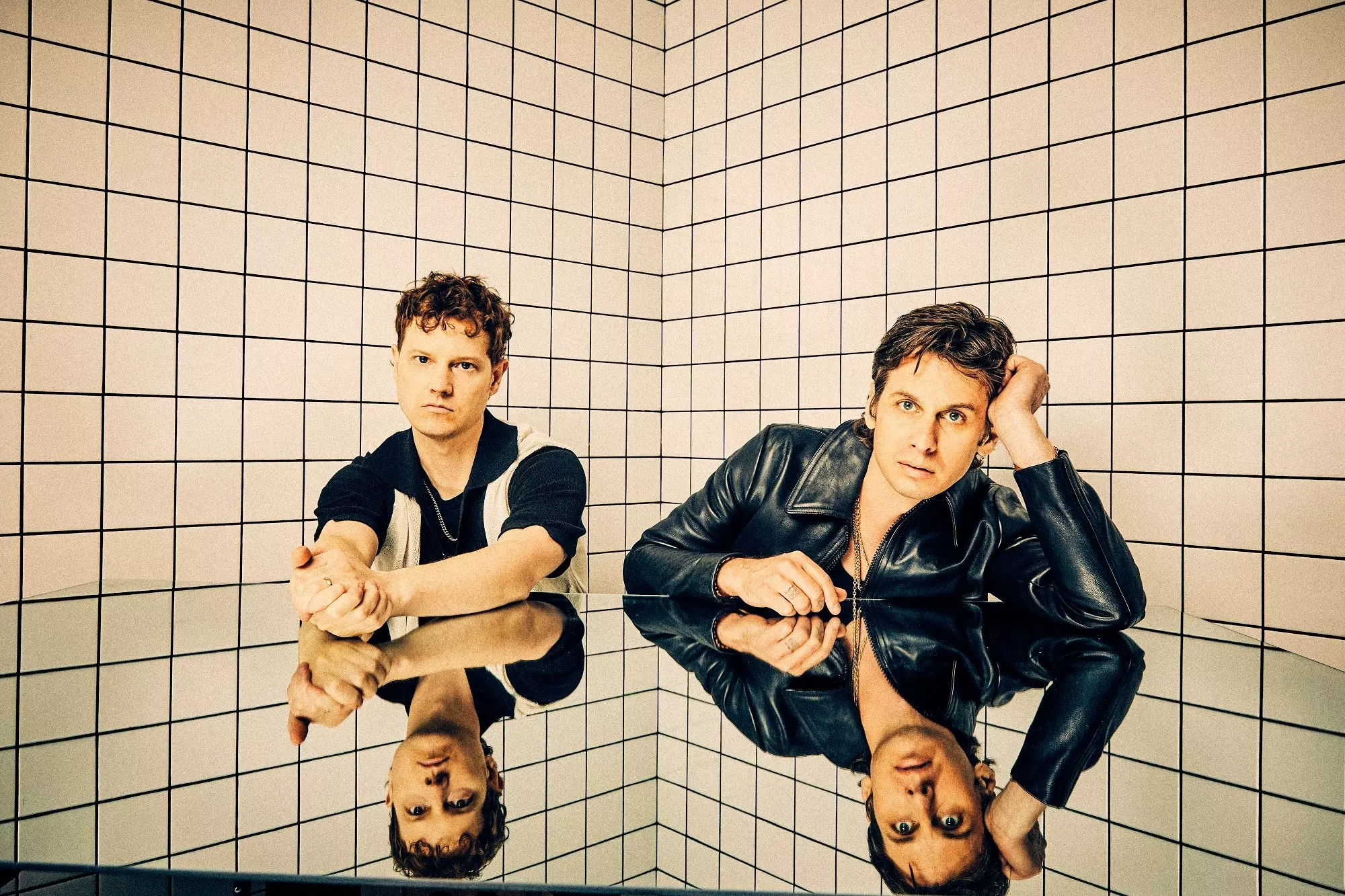
On Their First Album In 7 Years, Foster The People Explore A New State Of Mind
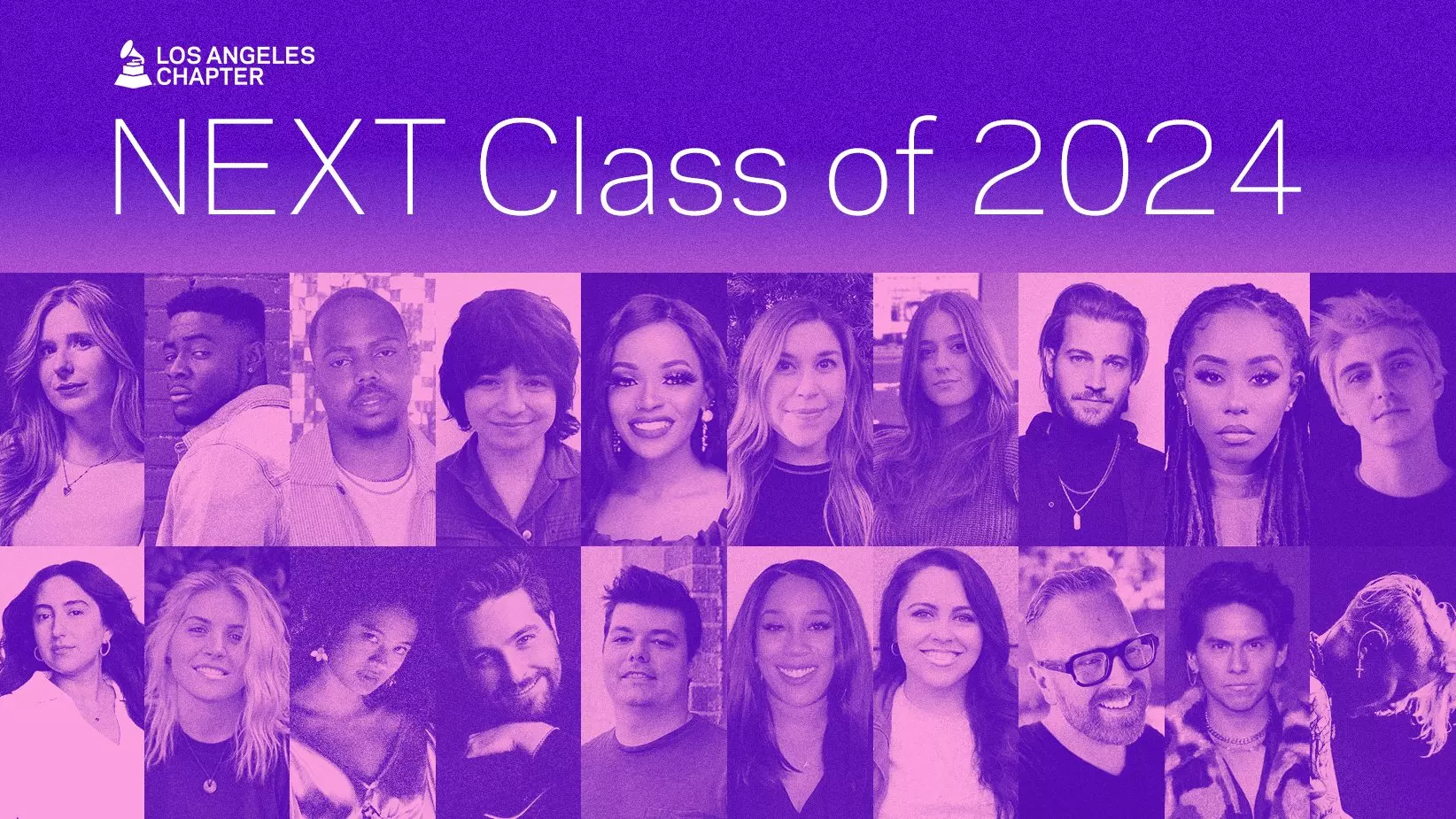
The Recording Academy's Los Angeles Chapter Celebrates The NEXT Class Of 2024: Building Community For Future Leaders
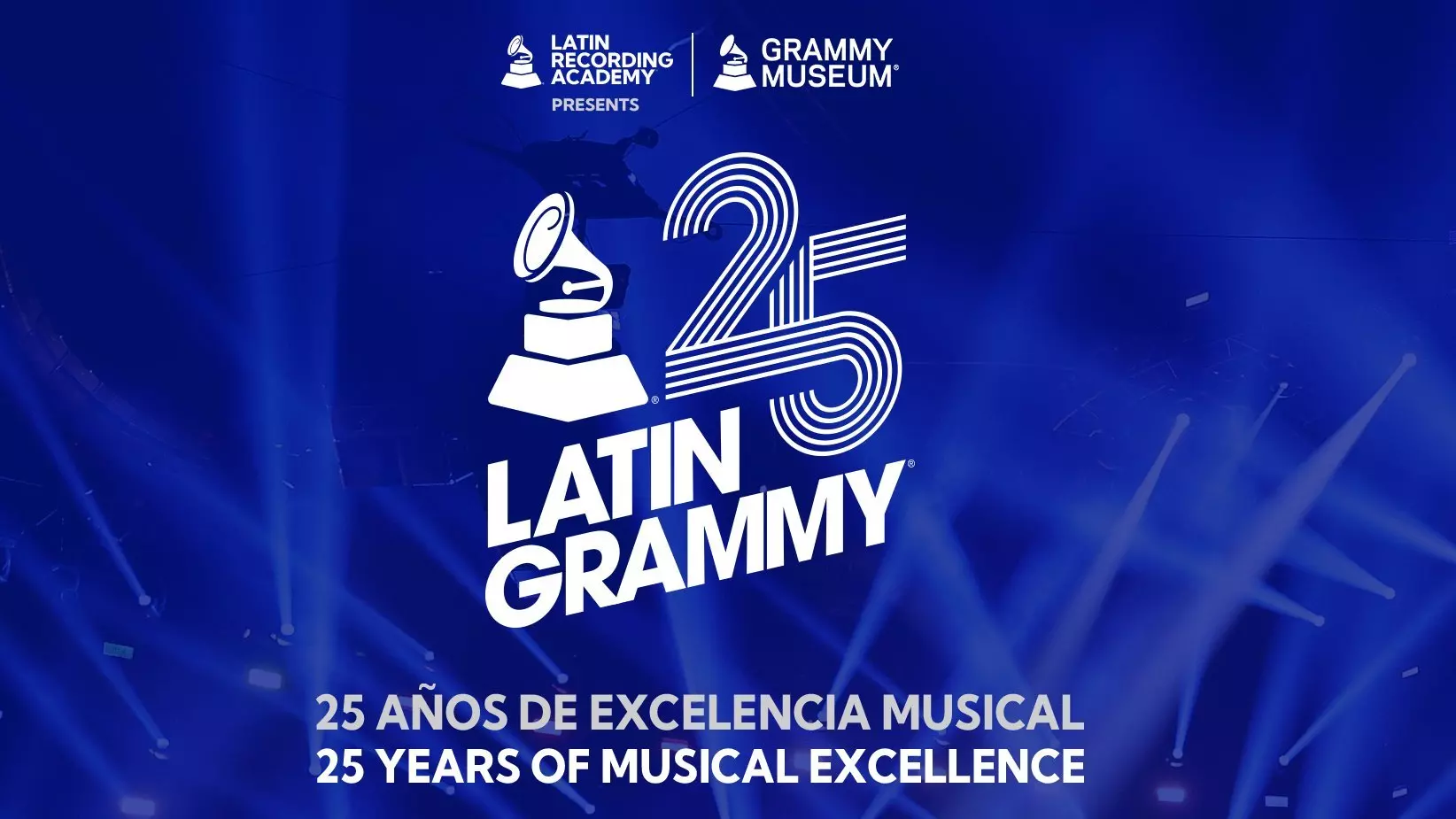
New Latin Recording Academy Exhibits In New York, Los Angeles & Miami To Celebrate The 25th Anniversary Of The Latin GRAMMYs: Launching September 2024

Photo: Matt Jelonek/Getty Images
list
Ice Spice Is The Drill Queen On 'Y2K!': 5 Takeaways From Her Debut Album
The 10-track LP clocks in at just under 24 minutes, but it's packed with insanely quotable one-liners, star-studded collaborations, and bold statements.
Since Ice Spice first caught our attention two summers ago, she's been nothing short of a rap sensation. From viral hits like her breakout "Munch (Feelin' U)," to co-signs from Drake and Cardi B, to a Best New Artist nomination at the 2024 GRAMMYs, the Bronx native continues to build on her momentum — and now, she adds a debut album to her feats.
Poised to be one of the hottest drops of the summer, Y2K! expands on Ice Spice's nonchalant flow and showcases her versatility across 10 unabashedly fierce tracks. She dabbles in Jersey club on "Did It First," throws fiery lines on lead single "Think U the S— (Fart)," and follows the album's nostalgic title with an interpolation of an early '00s Sean Paul hit on "Gimmie a Light."
Y2K! also adds more star-studded features to Ice Spice's catalog, with Travis Scott, Gunna and Central Cee featuring on "Oh Shh...," "B— I'm Packin'," and "Did It First," respectively. At the helm is producer RiotUSA, Ice Spice's longtime friend-turned-collaborator who has had a hand in producing most of the rapper's music — proving that she's found her stride.
As you stream Ice Spice's new album, here are five key takeaways from her much-awaited debut, Y2K!.
She Doubles Down On Bronx Drill
Ice Spice is one of the few ladies holding down the New York drill scene on a mainstream level. She's particularly rooted in Bronx drill, a hip-hop subgenre known for its hard-hitting 808s, high-hats and synthesizers — and according to the sounds of Y2K!, it’s seemingly always going to be part of her artistry.
"It's always time to evolve and grow as an artist, so I'm not rushing to jump into another sound or rushing to do something different," Ice Spice told Apple Music of her tried-and-true musical style.
While Y2K! may not be as drill-driven as her debut EP Like…?, the album further hints that Ice isn't ready to retire the sound anytime soon. The subgenre is the dominant force across the album's 10 tracks, and most evident in "Did It First," "Gimmie a Light" and "BB Belt." Even so, she continues her knack for putting her own flair on drill, bringing elements of trap and electronic music into bops like "Oh Shhh…" and "Think U the S— (Fart)."
She Recruited Producers Old & New
Minus a few tunes, all of Ice Spice's songs start off with her signature "Stop playing with 'em, Riot" catchphrase — a direct nod to her right-hand man RiotUSA. Ice and Riot met while attending Purchase College in New York, and they've been making music together since 2021's "Bully Freestyle," which served as Ice's debut single. "As I was growing, she was growing, and we just kept it in-house and are growing together," Riot told Finals in a 2022 interview.
Riot produced every track on Like.. ? as well as "Barbie World," her GRAMMY-nominated Barbie soundtrack hit with Nicki Minaj. Their musical chemistry continues to shine on Y2K!, as Riot had a hand in each of the LP's 10 tracks.
In a surprising move, though, Ice doesn't just lean on Riot this time around. Synthetic, who worked on Lil Uzi Vert's GRAMMY-nominated "Just Wanna Rock," brings his Midas touch to "Think U the S—." Elsewhere, "B— I'm Packin'" is co-produced by Riot, Dj Heroin, and indie-pop duo Ojivolta, who earned a GRAMMY nomination in 2022 for their work on Kanye West's Donda. But even with others in the room, Riot's succinct-yet-boisterous beats paired with Ice's soft-spoken delivery once again prove to be the winning formula.
She Loves Her Y2K Culture
Named after Ice Spice's birthdate (January 1, 2000), her debut album celebrates all things Y2K, along with the music and colorful aesthetics that defined the exciting era. To drive home the album's throwback theme, Ice tapped iconic photographer David LaChapelle for the cover artwork, which features the emcee posing outside a graffiti-ridden subway station entrance. LaChapelle's vibrant, kitschy photoshoots of Mariah Carey, Lil' Kim, Britney Spears, and the Queen of Y2K Paris Hilton became synonymous with the turn of the millennium.
True to form, Y2K!'s penultimate song and second single "Gimmie a Light" borrows from Sean Paul's "Gimme the Light," which was virtually inescapable in 2002. "We really wanted to have a very authentic Y2K sample in there," Ice Spice said in a recent Apple Music Radio interview with Zane Lowe. Not only does the Sean Paul sample bring the nostalgia, but it displays Ice's willingness to adopt new sounds like dancehall on an otherwise drill-heavy LP.
Taking the Y2K vibes up another notch, album closer "TTYL," a reference to the acronym-based internet slang that ruled the AIM and texting culture of the early aughts. The song itself offers fans a peek insideIce's lavish and exhilarating lifestyle: "Five stars when I'm lunchin'/ Bad b—, so he munchin'/ Shoot a movie at Dunkin'/ I'm a brand, it's nothin.'"
She's A Certified Baddie
Whether she's flaunting her sex appeal in "B— I'm Packin'" or demanding potential suitors to sign NDAs in "Plenty Sun," Ice exudes confidence from start to finish on Y2K!.
On the fiery standout track "Popa," Ice demonstrates she's in a league of her own: "They ain't want me to win, I was chosen/ That b— talkin' s—, she get poked in/ Tell her drop her pin, we ain't bowlin'/ Make them b—hes sick, I got motion." And just a few songs later, she fully declares it with "BB Belt": "Everybody be knowin' my name (Like)/ Just want the money, I don't want the fame (Like)/ And I'm different, they ain't in my lane."
For Ice, "baddie" status goes beyond one's physical attributes; it's a mindset she sells with her sassy delivery and IDGAF attitude.
She's Deep In Her Bag
In album opener "Phat Butt," Ice boasts about rocking Dolce & Gabbana, popping champagne, and being a four-time GRAMMY nominee: "Never lucky, I been blessed/ Queen said I'm the princess/ Been gettin' them big checks in a big house/ Havin' rich sex," she asserts.
Further down the track list, Ice Spice firmly stands in her place as rap's newest queen. In "BB Belt," she raps, "I get money, b—, I am a millionaire/ Walk in the party, everybody gon' stare/ If I ain't the one, why the f— am I here, hm?"
Between trekking across the globe for her first headlining tour and lighting up the Empire State Building orange as part of her Y2K! album rollout, Ice Spice shows no signs of slowing down. And as "BB Belt" alludes, her deal with 10K Projects/Capitol Records (she owns her masters and publishing) is further proof that she's the one calling the shots in her career.
Whatever Ice decides to do next, Y2K! stands as a victory lap; it shows her prowess as drill's latest superstar, but also proves she has the confidence to tackle new sounds. As she rapped in 2023's "Bikini Bottom," "How can I lose if I'm already chose?" Judging by her debut album, Ice Spice is determined to keep living that mantra.
More Rap News

New Music Friday: Listen To Songs From Lady Gaga & Bruno Mars, LISA & Rosalía, Benson Boone & More

Ice Spice Is The Drill Queen On 'Y2K!': 5 Takeaways From Her Debut Album

Watch Young MC Win Best Rap Performance In 1990

On Rakim's 'G.O.D's Network (REB7RTH)' The MC Turned Producer Continues His Legacy With An All-Star Cast

5 Ways Mac Dre's Final Living Albums Shaped Bay Area Rap
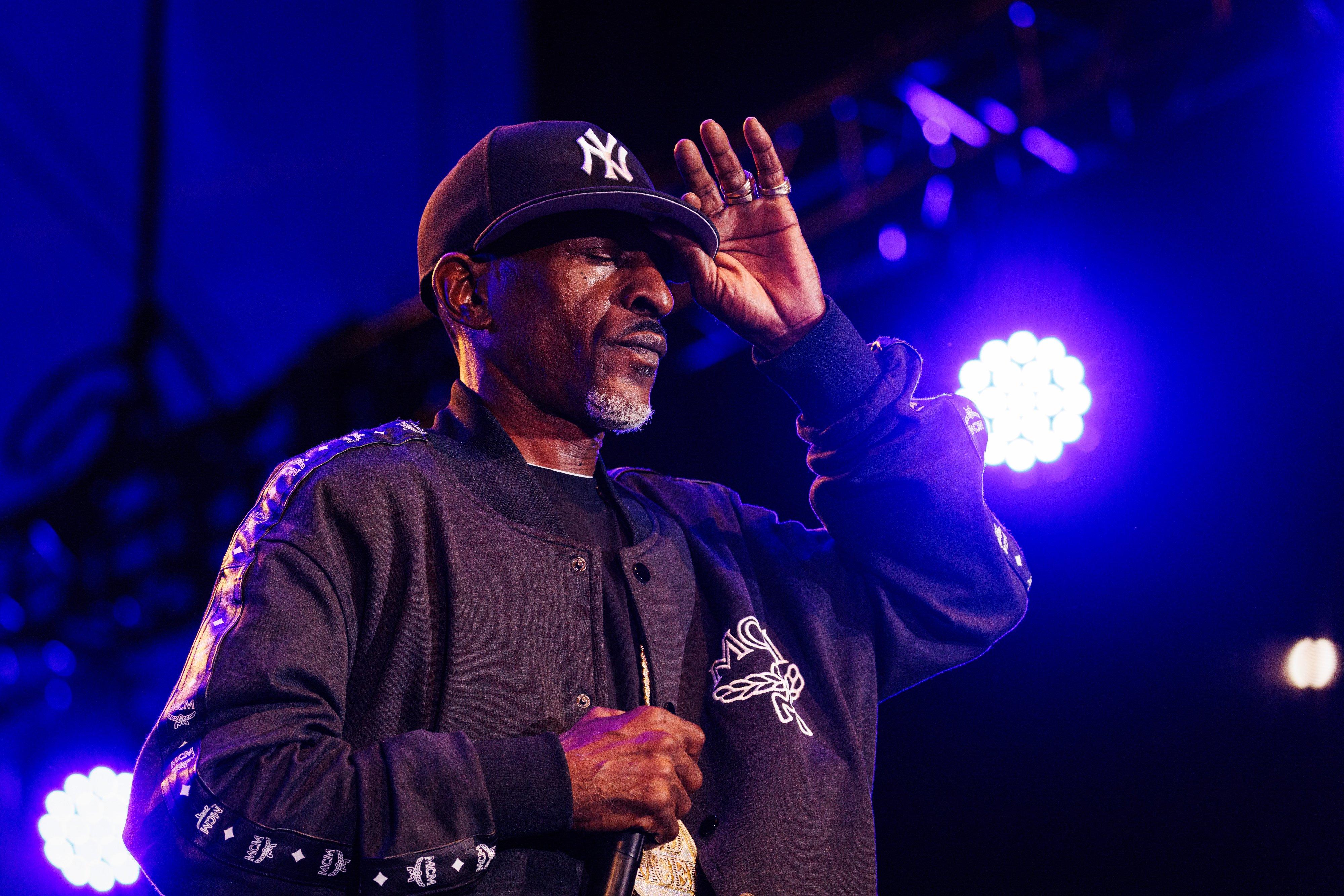
Photo: Richard Bord
feature
On Rakim's 'G.O.D's Network (REB7RTH)' The MC Turned Producer Continues His Legacy With An All-Star Cast
On his first project in 15 years, "God MC" Rakim produced seven songs and called on some of hip-hop's biggest names. The legend and his team detail his new album and working with Nipsey Hussle, DMX and Snoop Dogg.
Every album comes with a backstory, but not many come with two. Rakim's new project G.O.D's Network (REB7RTH), out July 26, came together in a few quick months, from signing a deal in February 2024 to completion in June. The process was spurred by one dedicated A&R person frantically combing through his network of rappers to get guest verses over beats produced by the God MC himself.
But to hear that A&R man, Matt "M80" Markoff, tell it, creating the seven-song project didn't take four months. It took four years.
"I've known [Rakim's longtime manager] Matt [Kemp] and Rakim since 2007," Markoff tells me when I get him on the phone in late June. "They're used to getting calls from me a couple of times a year just for, like, show referrals, verse referrals, things of that nature."
Back at the beginning of the pandemic, Markoff had been talking to the folks at Fat Beats, the venerable record store-turned-distributor that's a huge name in independent hip-hop. He mentioned Rakim's name to the company, and Fat Beats responded that they'd love a project from the God MC. The original pitch, Markoff remembers, was "a three or four song EP with some remixes."
Rakim quoted his price, Fat Beats agreed, and the project was underway, with the emcee meeting with producers to look for beats. But Rakim, who hasn't released a solo album since 2009's The Seventh Seal, is not one to be hurried.
"Ra was having [DJ] Premier and Pete Rock and Ninth Wonder and some of these people come to the studio," Markoff says. "Because of scheduling conflicts and stuff and, you know, normal course of life, it just wasn't right. The vibe wasn't there."
That's where Jazzy Jeff came into play. Rakim and the legendary DJ began working together and, per Markoff, it "just meshed." It seemed like, instead of a handful of songs, a full-length record was in the offing.
"As soon as they finish the first song, I walk into Fat Beats and say, ‘Hey, this is what we're doing now,'" the A&R man recalls. "Instead of Rakim with random producers, it's Rakim/Jazzy Jeff. That'll be huge."
Then…nothing.
A few years pass, and the Rakim and Jazzy Jeff project is still unfinished. (Rakim described its status as "We have a couple records already done.") Fat Beats, which was on the auction block (it was eventually sold in March 2024), wants its money back. Rakim obliges, and everyone seems set to forget about the whole thing.
Markoff, however, was not about to give up on working with the man he calls "my favorite emcee of all time."
The revamped album started its life as not an album at all. Instead, the original conception was a model Markoff had used before: licensing beats by people not typically thought of as producers. In this case, he'd be offering aspiring rappers the chance to get beats by arguably the most influential rapper of all time.
"He's taken people who are not necessarily known as producers and put together beat packages for them," manager Matt Kemp says of Markoff. "And then, one of the things he does is he goes out and he licenses those beats through a company that he has. If you're a European artist that wouldn't necessarily have access to things like that, you can get it."
So that, as of February of this year, was the (revamped) plan: have Rakim do six beats and one verse, and sell non-exclusive licenses, so that any rapper, anywhere in the world, who wants to use them in a song of their own could do so. This, indeed, was a vision that was followed through all the way to the finish line — you can see the end result released July 12, priced between $700-$1,050 depending on what you want to do with the beats and the rhyme, here.
But along the way to creating that package, things got significantly more complicated. As Rakim was making the beats, he found he really liked them. In some cases, he even wanted to rhyme on them himself.
"As the beats started coming together and Rakim was really in the studio and we started putting the rhymes onto them, we realized that it was bigger just than that [original vision]," Matt Kemp said.
The wheels started turning. Rakim, the God MC, as a producer? That would be a project worth sharing with the world, not just a few aspiring artists.
As it turns out, unbeknownst even to many Ra fans, the rapper has been making beats since the beginning. In fact, he produced — and played drums on — one of Eric B and Rakim's classic songs, 1992's "Juice (Know the Ledge)." So producing an entire project didn't seem like such a big stretch after all.
"I always was attached to making beats," Rakim explains to me. "But I got to the point where I'm confident with my production now. I got the chance to produce the album and jumped at the opportunity."
Rakim, as has been well documented over the years, comes from a musical family. His older brother Ronnie was a keyboard player of some note with his own claim on rap history, his other brother Stevie is also keyboardist who performed on some Eric B. and Rakim songs, and the rapper's aunt is the late R&B legend Ruth Brown. So when making beats, Ra will often play drums, bass, guitar, or piano. (He cops to enlisting one of his brothers if the keyboard part gets too complicated.)
He describes his production style this way: "You try to add on to the sample, and enhance certain sounds that you hear. Or you might just add a melody that you feel enhances the sample as well."
In addition to playing instruments on the project, Rakim also plays the turntable.
"I always knew how to DJ, and I like being able to enjoy the project from a different seat," he tells me. "I enjoyed putting the music together, coming up with the scratch patterns."
So with the musical side of the equation firmly in place, what about the vocals? Rakim was inspired to add verses on a few songs, and hooks on a few more.
"It's mostly a project that I was supposed to be producing," he explains. "In the midst of that, there's certain beats that I'm playing and I'm like, ‘I gotta rhyme on this one,' or, ‘I got a rhyme that fits this one perfectly.'"
The question was, what to write about? After a decade and a half without an album, the rapper had a lot to discuss, and needed to find new ways to say it.
For the project's lead single, "BE ILL," he got in plenty of internal rhymes. And the song's tempo allowed him to come up with different rhythms.
"When tracks are at that speed, I'm able to manipulate time and space to come up with different rhythms because I have so much time and space to deal with," he says. "It was one of them songs I loved rhyming to. Just having fun with words and phrases, and at the same time having so much on my mind to say."
"I'm trying to say a lot of things," Ra admits when discussing his writing on the album. "It's hard to just come back and say a verse when you've been gone so long. So I tried to be very specific and cautious with the words that I chose, and try to be entertaining at the same time. So it was a little nerve wracking."
Even with Rakim's vocal contributions (he ends up with either verses or hooks on six of the project's seven tracks), more was needed to complete the songs. That's where Markoff really got going.
"Literally, I didn't waste a single day," he remembers. "I was calling the artists in my network. I reached out to each artist one by one, and let each artist go through the folder [of beats] with me and make their picks."
Among the artists Markoff reached out to were several members of the Wu-Tang Clan. He has a long relationship with the crew, having worked with them on several projects including the well-regarded 2005 album Wu-Tang Meet the Indie Culture.
Markoff recalls the exact moment when he lined up Wu member Masta Killa for his appearance on what became "BE ILL."
"I was at the first ever Wu-Tang Clan residency in Vegas, and I told Masta Killa, ‘Dude, I just got these Rakim beats 10 minutes ago.' I played 10 seconds of the second beat, which was the beat for ‘BE ILL.' And he was like, ‘That's the one.'"
A different Wu-Tang show was responsible for one of the album's other notable guest appearances, Cash Money stalwart B.G. The two met at the concert, and the Louisiana rapper was in the studio "48 hours later," Markoff recalls.
For a handful of artists he had good long-term relationships with, Markoff let them choose which of Rakim's beats they wanted to rap over. In addition to Masta Killa, he names Chino XL, Hus Kingpin, 38 Spesh, and TriState as being on that short list. After that, he says, it was all his decision.
The end result is a list of some of the top rappers in his Rolodex: Kool G. Rap, Method Man, Kurupt, Canibus, KXNG Crooked, Skyzoo, Joell Ortiz, and many more — including an outro from Snoop Dogg. But one of the most surprising things on the tracklist is that a number of the guests aren't alive anymore.
Nipsey Hussle, Prodigy, DMX, and Fred the Godson have verses on the record. All of them were people Markoff had worked with in some capacity over the course of his career. He says that all of the verses were "in my stash or under my ownership." So when he was looking for material for the Rakim project, they were a perfect fit.
The Nipsey Hussle contribution in particular stood out so much that the entire song, "Love Is the Message," was designed around it. The project's engineer placed Neighborhood Nip's verse first, and everyone else listened to that when recording.
"We kind of glorified who he is, and came up with the title ‘Love Is the Message' to put everything in perspective," Rakim tells me. "So everybody vibed off of that and everything that we implemented had to have that feel or had to be in that direction."
One thing Rakim noticed as he was listening to the contributions coming in? Many of them were paying tribute to him. In particular, B.G. says in his verse that he's "on a song with the greatest."
"To hear things like that from my peers is a beautiful thing," says Rakim, who also admits to tearing up when hearing Snoop Dogg praise him on the outro of one of the album's songs. "Hip-hop is one of the more, I guess, feisty genres. It's hard to get that love from your peers. So it's a real blessing to hear it from people like that, to hear what they think of you and to say that on records. A lot of people might think that of you, but would never say it on a record."
For Markoff, B.G.'s tribute was particularly meaningful because of the rapper's history. He began his career in a duo, and later a quartet, with another rapper sometimes considered the greatest of all time, Lil Wayne.
"For B.G. to have that history, but acknowledge Rakim — I was speechless," Markoff confides. "It was really cool to see. It's like, ‘I'm not just going to say my partner, my friend, my confidant Lil Wayne's the best because we grew up together.'"
Finally, after all the guest verses came in, the project was ready. Seven songs, entirely produced by Rakim, with raps by him and a broad cross-section of artists. The question, then: what exactly is this project? An album? An EP? Rakim's big comeback? A teaser for his eventual full-length return?
To Markoff, none of these labels are important. He's not concerned about fans being disappointed that a project under Rakim's name features only a handful of the rapper's verses.
"The fan is going to look at it however they want to look at it," he says. "The negative people will stay negative. It wouldn't matter if it was the greatest album of all time. The positive people that are so grateful that I stepped up to the plate to help bring new Rakim music to the world are going to love it."
After all, he continues, "The whole point originally when we started making it was letting his peers shine on Rakim beats. The fact that this project morphed into something that Rakim literally is on 95% of, I couldn't have asked for more of a blessing."
So Matt Markoff, the boy who fell in love with Rakim's music at 12 is now, three decades later, putting out music from his hero.
"Dream fulfilled," he says right before we hang up. "Now I gotta figure out what I'm going to do for the rest of my life."
Latest News & Exclusive Videos

Watch Loretta Lynn Win Best Country Album In 2005

New Music Friday: Listen To Songs From Lady Gaga & Bruno Mars, LISA & Rosalía, Benson Boone & More

On Their First Album In 7 Years, Foster The People Explore A New State Of Mind

The Recording Academy's Los Angeles Chapter Celebrates The NEXT Class Of 2024: Building Community For Future Leaders

New Latin Recording Academy Exhibits In New York, Los Angeles & Miami To Celebrate The 25th Anniversary Of The Latin GRAMMYs: Launching September 2024
